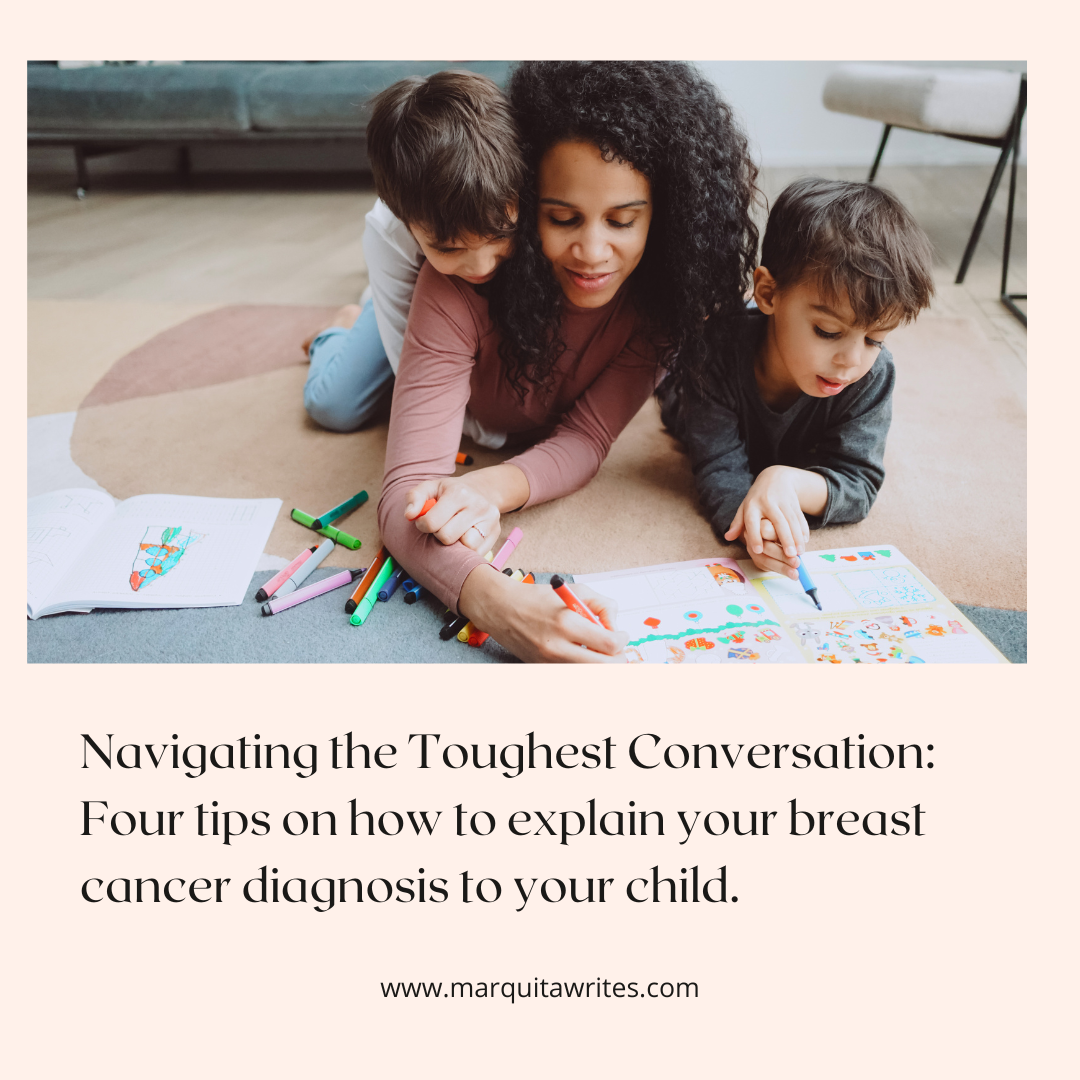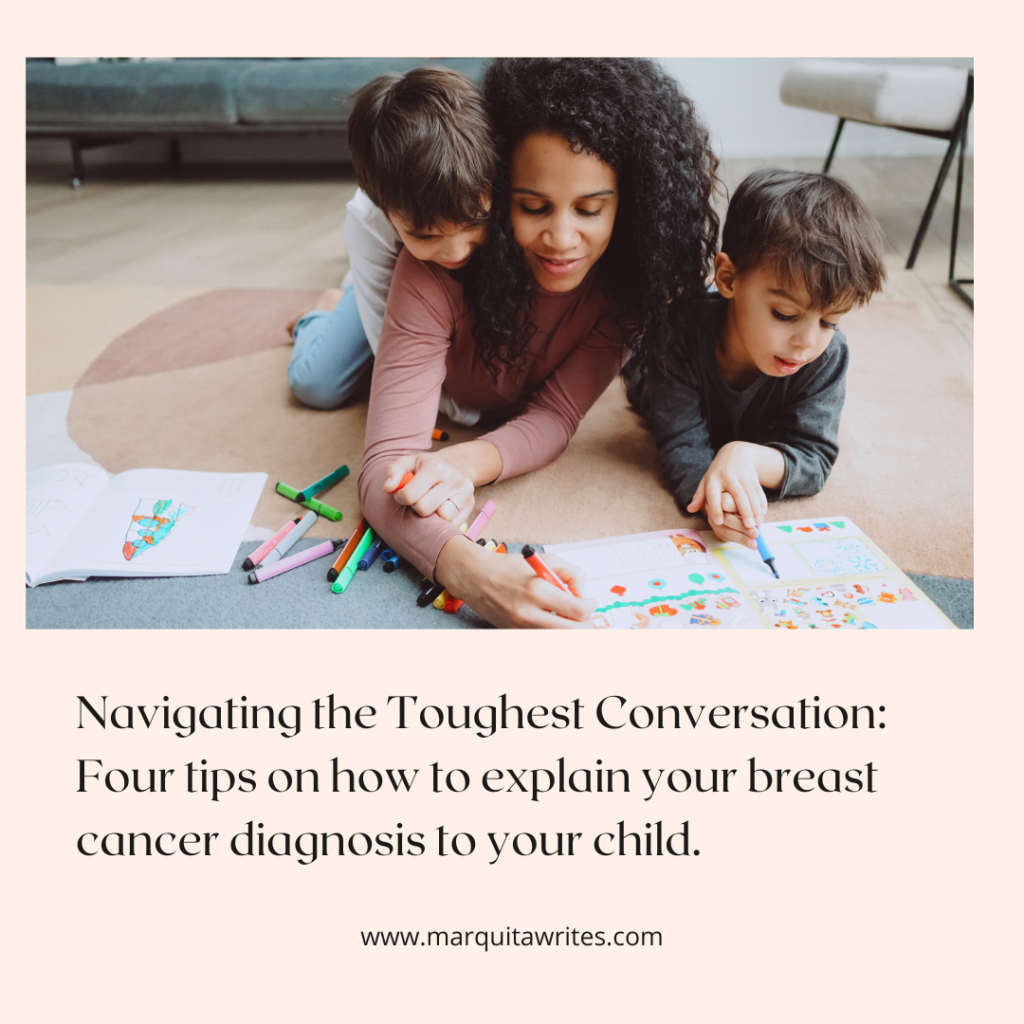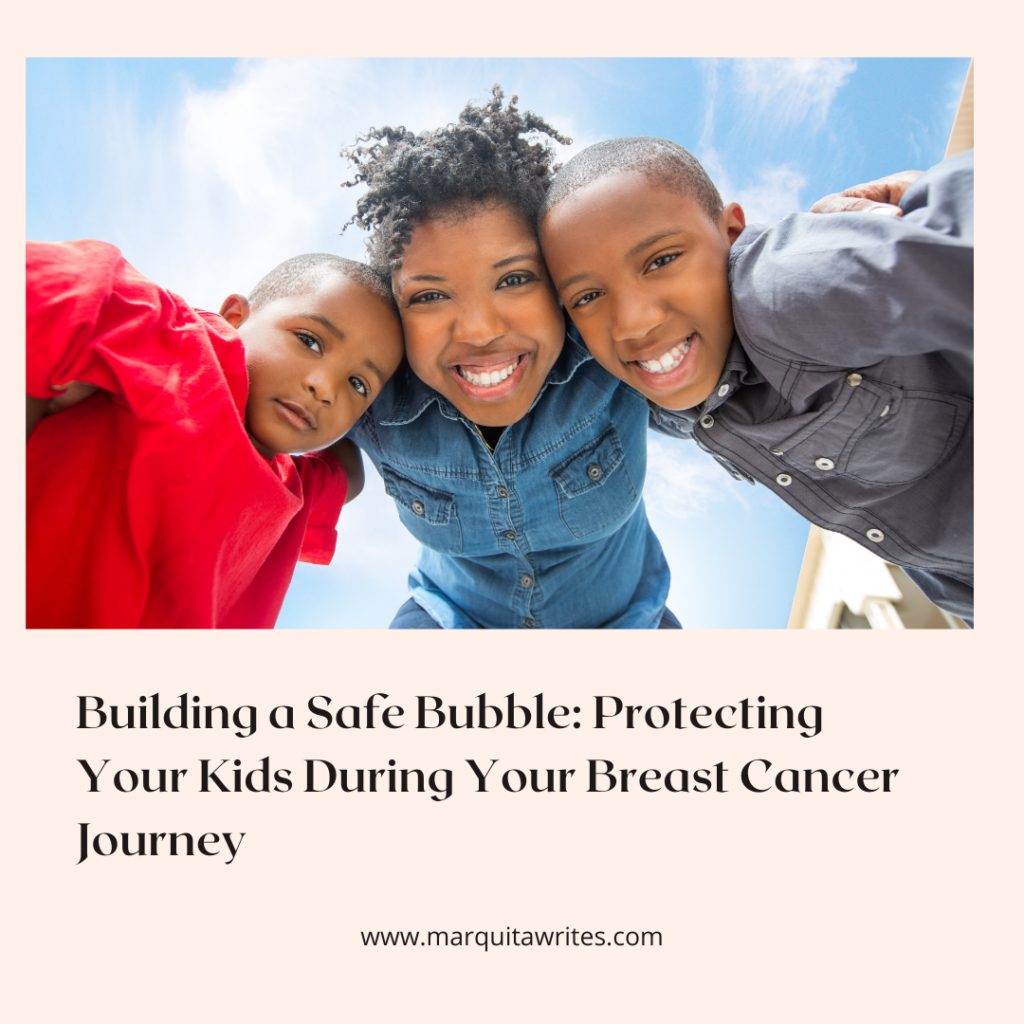
Navigating the Toughest Conversation: Four tips on how to explain your breast cancer diagnosis to your child.

As a breast cancer survivor, I know firsthand that a breast cancer diagnosis itself is just the beginning of a journey. As a parent, it is always difficult to find the right words to say. When an issue arises, it can be hard to explain to a child on a level they can understand. Explaining a breast cancer diagnosis to a small child can be frightening and heartbreaking. But what I have found in my journey is that it is all about your approach. One of the most heart-wrenching aspects for me was figuring out how to tell my children. It felt like navigating a minefield of emotions – mine and theirs.
Believe me, there’s no perfect script, and every family is different. But through my own experience and talking with other survivors, I’ve learned some valuable lessons. I wanted to share four key tips that helped me approach this difficult conversation with my kids. My hope is that these insights can offer some comfort and guidance if you’re facing this challenge.
Here are four tips on how to explain your breast cancer diagnosis to your child:
1. Be Positive
Although it’s difficult to be positive, it’s crucial when dealing with your children. Children will mimic your reaction or energy. If you have an upbeat attitude, then they will have an upbeat attitude. Your positive approach to your diagnosis can ease their fears. When you first share the news, try to maintain a calm and hopeful demeanor. This doesn’t mean you have to hide your feelings entirely, but focusing on the plan for getting better can be reassuring.
2. Be Honest
I know that initially, some parents will try to hide their diagnosis from their children. But what I have come to realize by dealing with my own children is that by being secretive, you create fear within your child. Children watch us carefully so they can tell when something has changed. Try to be honest about your upcoming procedures, appointments, and medicines. Explain to them what to expect, how you may feel or appear, and the goal. I find that honesty better prepares them for the journey. Tailor the information to their age, but don’t shy away from the truth. Explain that you have a sickness that the doctors are going to help you fight.
3. Use Considerate Wording
The way you speak about your diagnosis can make or break your child. Try to address your diagnosis has a family challenge. Explain that it will be a difficult journey, but that you are up for it, and you will all beat it together. Make a plan of attack as a family. Something your kids can actually partake in. Explain to your children some of things they may witness and how some of the procedures may make you feel. Explain that it will be difficult, but that you will get through it. Choose your words carefully. Instead of saying “I’m very sick,” you could say, “I have something called breast cancer, and the doctors are going to help me get better. Sometimes the medicine might make me feel tired, but it’s helping me get stronger.”
4. Find a Breast Cancer Children’s Book
I poured my heart into writing BK’s Mommy Has Breast Cancer. It became clear to me that there needed to be a gentle and relatable way for children, especially young ones like BK, who was at the time (seven years old), to understand what their mommy was going through.
Through the pages of this book, I wanted to show my son BK, and other children facing similar situations, that even amidst a scary diagnosis, there are still so many ways they can be a source of love and support. I wanted to highlight the little things that truly matter – being a friend, offering entertainment, even being a “workout buddy” in a gentle way, and understanding how to be a caregiver in their own small way.
Writing this book was a very personal journey, drawing directly from our family’s experiences and the factual events we navigated. My hope was to create something positive, authentic, and upbeat, a resource that could help any family facing the daunting reality of cancer.
The rhyming text and positive illustrations were intentional choices. I wanted to create a book that wasn’t frightening but rather hopeful and encouraging. My deepest wish is that BK’s Mommy Has Breast Cancer helps children feel empowered and understand that they can play a vital role in supporting their loved one as they fight one of the hardest battles of their life. It’s a book from my heart, written with the love I have for my son and the hope that it can bring comfort and understanding to other families walking this path.
My Final Thoughts:
Talking to your kids about breast cancer is undoubtedly one of the hardest things you’ll do. Be kind to yourself, be patient with your children, and remember that open and honest communication, tailored to their understanding, is key. You are strong, and you will get through this. And remember, there is a whole community of survivors out there who understand what you’re going through.
Stay strong,
Marquita Goodluck – Breast Cancer Survivor


